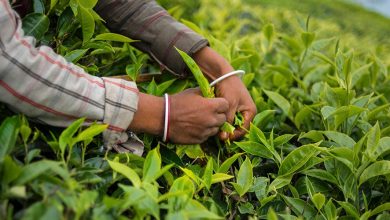AgriTech4Tanzania now goes for food security

DAR ES SALAAM: AGRICULTURAL technology (AgriTech) is rapidly becoming a cornerstone of Tanzania’s strategy to transform its agricultural sector.
In a nation where agriculture sustains the majority and is vital for food security, innovative solutions are essential to overcome longstanding challenges, including low productivity, climate change and market inefficiencies.
AgriTech initiatives, like the AgriTech4Tanzania Innovation Challenge, bring together entrepreneurs, farmers, researchers and policymakers to cocreate practical, scalable technologies that address realworld problems.
AgriTech not only enhances productivity and reduces post-harvest losses but also empowers the youth, offering new economic opportunities and encouraging modern farming practices.
This approach aligns with Tanzania’s broader goals of boosting economic growth, improving food security and building a sustainable agricultural future.
Tanzania’s agricultural sector stands at a critical crossroads. With a rapidly growing population and increasing demand for food, the country is intensifying efforts to transform agriculture through innovation, youth engagement and strategic international partnerships.
ALSO READ: AGRA pledges stronger partnership to boost food security
This transformation is crucial not only for ensuring food security but also for creating jobs and boosting economic growth. At the heart of this change is the government’s commitment to empowering farmers and embracing modern technology.
Speaking at the AgriTech4 Tanzania workshop in Dar es Salaam recently, the Senior Project Analyst at the Alliance of Bioversity International and CIAT, Ms Claudia Zaccari, emphasised the critical role of combining global scientific expertise with local knowledge.
“This forum is not just a meeting of minds, but a moment to align practical research with the needs of communities on the ground,” she said, highlighting CIAT’s commitment to sustainable solutions through data-driven science and capacity building. Ms Zaccari further said the Alliance’s focus is on strengthening value chains and empowering youth and women through climate-smart practices and digital tools.
She added, “we are here to listen, collaborate and codesign solutions that reflect the realities of Tanzanian farmers.” Following this, Senior Manager for Partnerships and Innovative Finance at the Alliance of Bioversity International and CIAT, Mr Gianpiero Menza, stressed the importance of local ownership and practical science.
Mr Menza said, “this isn’t just theory, it’s a response to urgent challenges,” referring to climate pressures and food insecurity. Mr Menza described the AgriTech4Tanzania workshop as a launchpad for impactful, sustainable innovation in Tanzania’s agricultural sector.
The government’s commitment to this transformation was highlighted by Deputy Permanent Secretary in the Ministry of Agriculture, Dr Stephen Nindi.
He explained that the Agricultural Sector Development Programme Phase II (ASDP II) empowers smallholder farmers with access to modern technology and farming practices to increase productivity. Dr Nindi praised initiatives like AgriTech4Tanzania as catalysts for addressing low yields, post-harvest losses and climate resilience, stressing the vital role of youth engagement.
“They bring energy and creativity to the sector,” he noted.
ALSO READ: Erratic rains threaten food security in Karagwe
Dr Nindi urged continuous innovation to sustainably increase food production, while Dr Kilenga stressed reducing post-harvest losses through better handling and storage.
Supporting these efforts, Italian Ambassador to Tanzania Giuseppe Coppola reaffirmed Italy’s dedication to Tanzania’s agricultural development. He outlined Italy’s active involvement in upgrading the coffee value chain to meet European quality standards and expanding market access for Tanzanian farmers.
Ambassador Coppola also highlighted Italy’s support for Tanzanian agribusinesses at international trade fairs such as MacFrut, fostering global exposure and training for about 40 local companies.
“Our goal is to create partnerships that enable Tanzanian farmers to improve productivity, earn better incomes and contribute to food security,” he said.
Ambassador Coppola confirmed Italy’s ongoing support in these areas, aiming for long-term food security and economic development. On the domestic policy front, Dr Sophia Kilenga, Director of Policy and Planning at the Ministry of Agriculture, described Tanzania’s agricultural challenges and opportunities.
She said that while the country produces sufficient food overall, issues around distribution, food loss and rising demand due to population growth remain significant.
Dr Kilenga emphasised innovation and youth participation as key to addressing these challenges, alongside climate change adaptation and improved value chains.
“Tanzania’s young population is a tremendous resource and their involvement in farming will shape the future of food security,” she said.
Echoing this, the Managing Director of Shamba Box Mr Seth Mkisi, shared insights from the private sector. His agri-tech company delivers affordable, techenabled farming solutions directly to farmers.
He praised the AgriTech4Tanzania Innovation Challenge as a platform for developing smart, farmer-centric technologies, especially for maize, a staple crop.
“Innovative solutions can significantly improve yields and reduce postharvest losses,” Mkisi said, highlighting the importance of collaboration to accelerate technology adoption and empower youth entrepreneurs.
Despite the progress, challenges such as limited access to finance, infrastructure deficits and climate vulnerability remain. Together, these voices outline a unified vision where technology, youth empowerment and international partnerships create a resilient and productive agricultural future for Tanzania.
As Tanzania embraces technology and innovation, the synergy between government efforts, international cooperation and private sector ingenuity creates promising pathways for transformation.
With initiatives like AgriTech4Tanzania leading the way, the country is poised to harness its agricultural potential, turning challenges into opportunities for a food secure and prosperous future.





